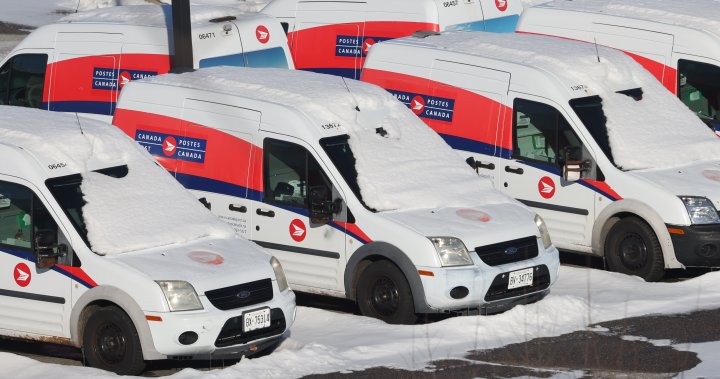Paragraph 1: Strike Resolution and Return to Work Order
A month-long strike by Canada Post workers is set to conclude on Tuesday, December 17, 2024, following an order from the Canada Industrial Relations Board (CIRB). The CIRB, after two days of hearings, determined that negotiations between Canada Post and the Canadian Union of Postal Workers (CUPW) had reached an impasse. The board subsequently issued a return-to-work order, mandating employees to resume their duties at 8:00 am local time on Tuesday. Postal services will remain suspended on Monday, marking the 32nd day of the strike. Canada Post expressed its anticipation in welcoming employees back and resuming service to Canadians and businesses, promising further details about the resumption plan on Monday.
Paragraph 2: Government Intervention and Minister’s Justification
The CIRB’s intervention followed a request by Labour Minister Steven MacKinnon, who on Friday had asked the board to issue a return-to-work order if it concurred with his assessment that negotiations were deadlocked. Minister MacKinnon characterized the decision as a difficult one, explaining that it was time to "call a time out." The strike, involving over 55,000 workers, commenced on November 15, 2024. CUPW’s key demands included wage increases, enhanced pension benefits, and improved health coverage. The minister emphasized the need to restore postal services, given their vital role in the Canadian economy and the lives of citizens.
Paragraph 3: Wage Increase Offer and Contract Extension
As part of its efforts to resolve the dispute, Canada Post announced a proposed wage increase of five percent for employees, retroactive to the day following the expiry of each collective agreement. For rural and suburban mail carriers (RSMC), this date was December 31, 2023, while for urban workers, it was January 31, 2024. Existing collective agreements will be extended until May 22, 2025, providing a period for further negotiations. This offer, which was part of the company’s last global offer, aims to address the union’s wage demands and facilitate a smoother transition back to work.
Paragraph 4: Union Response and Criticism of Government Action
The CUPW did not immediately comment on the CIRB’s return-to-work order. However, the union had previously criticized the government’s intervention on Friday, denouncing it as an attack on their constitutionally protected right to free and fair collective bargaining and the right to strike. The union’s statement emphasized the importance of respecting workers’ rights and allowing collective bargaining to unfold without undue interference. This highlights the tension between the government’s responsibility to ensure essential services and the workers’ right to negotiate for better terms and conditions.
Paragraph 5: Government’s Initial Reluctance and Past Interventions
Prior to Friday’s request, the federal government had resisted calls from various groups to intervene in the strike. Instead, it consistently urged both Canada Post and CUPW to reach a negotiated agreement. However, the protracted nature of the dispute and its potential impact on the economy and individuals ultimately led to the government’s decision to request the CIRB’s intervention. This is not the first instance of government intervention in Canada Post strikes. In both 2011 and 2018, back-to-work legislation was used to end postal disruptions and ensure the resumption of crucial mail services.
Paragraph 6: Significance of Postal Services and Impact of the Strike
The month-long Canada Post strike underscored the significant role postal services play in Canadian society. The disruption affected businesses relying on mail for deliveries and communications, as well as individuals dependent on mail for essential documents, bills, and personal correspondence. The strike also highlighted the challenges of balancing the interests of workers seeking better compensation and working conditions with the need to maintain essential services for the public. The government’s intervention, while controversial, aimed to resolve the impasse and restore the vital flow of mail across the country. The extended collective agreements and the proposed wage increase provide a framework for future negotiations and a pathway towards a more sustainable relationship between Canada Post and its employees.

